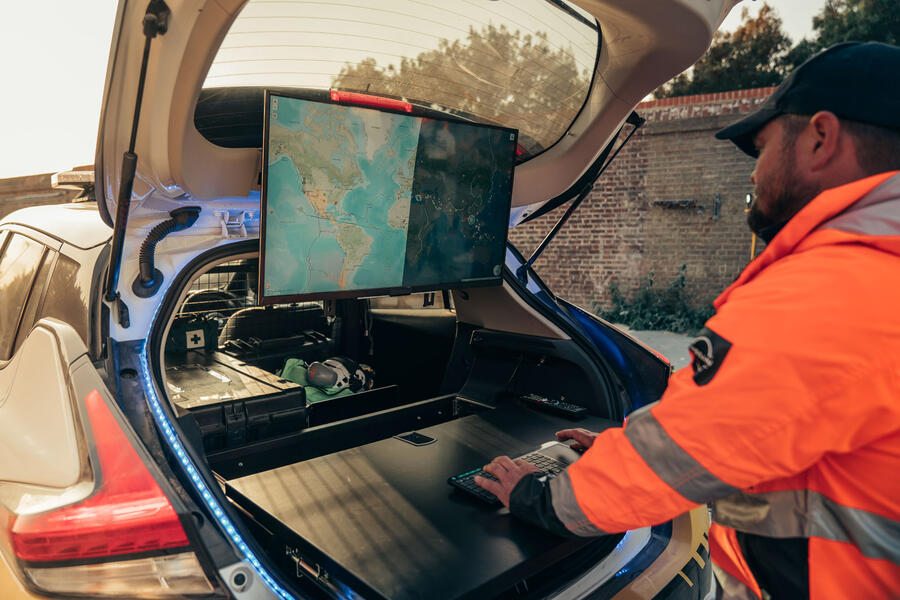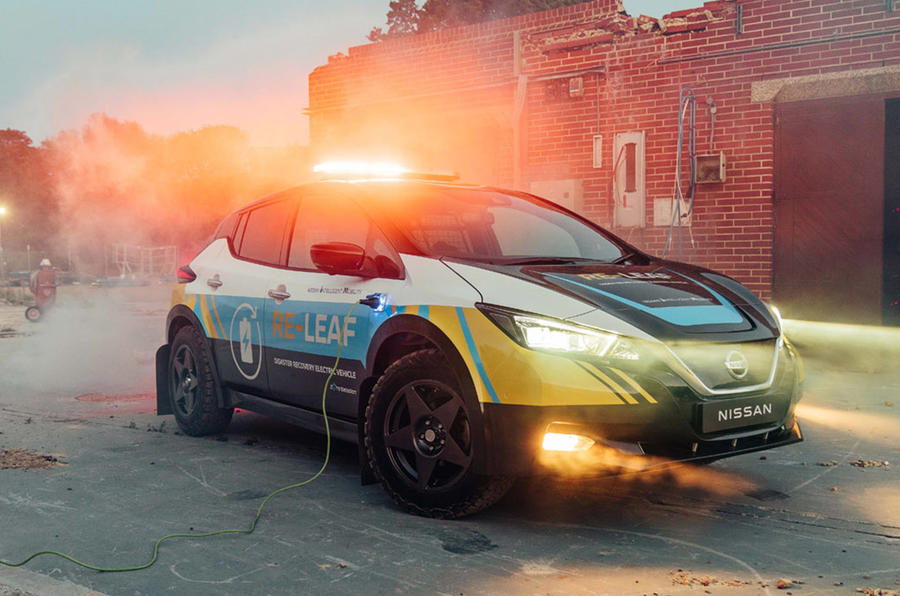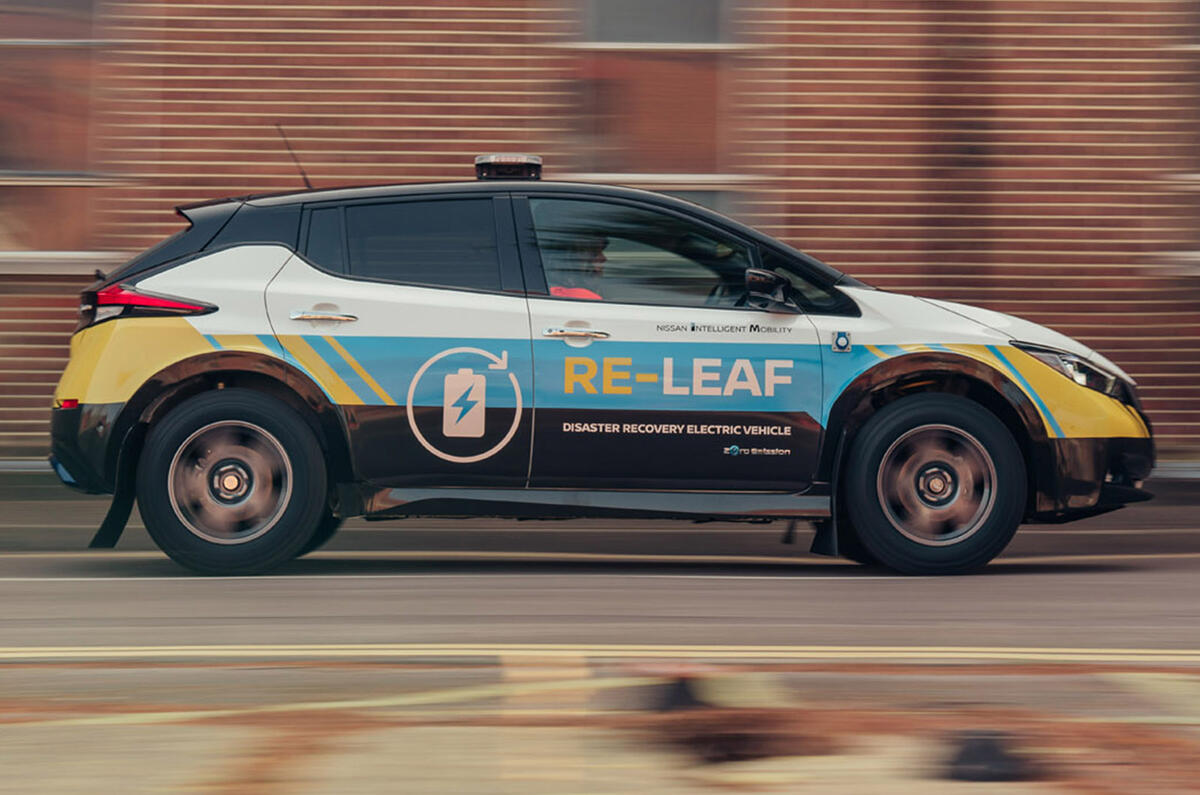Nissan has revealed a Nissan Leaf-based emergency response car that provides a mobile power supply in the wake of natural disasters.
The prototype electric vehicle, which is dubbed RE-Leaf, has been created to “demonstrate the potential of electric vehicles in disaster recovery”.
The RE-Leaf uses bi-directional charging to not only store electricity but also to return it to the grid, allowing it to supply disaster zones that have suffered blackouts.
A modified version of Nissan’s best-selling customer Leaf, the RE-Leaf also rides 70mm higher than the standard car in order to help it navigate roads with obstructions or fallen debris.
It also features a custom ‘sump guard’ to protect the car’s floor pan and wider tracks, alongside custom wheel arches and mud flaps. The RE-Leaf rides on 17in motorsport wheels fitted with all-terrain tyres.

On the inside, Nissan has removed the Leaf’s rear seats to create an enlarged storage area that is separated from the front seats by a custom bulk-head cage.
The exterior is coloured amber with blue detailing.
Nissan electric passenger cars boss Helen Perry said: “Concepts like the RE-Leaf show the possible application of EVs in disaster management and demonstrate that smarter, cleaner technology can help save lives and provide greater resilience for the future.”
Emergency services are a growing part of Nissan’s operations. Since 2011, Nissan has supported recovery from disasters by providing emergency power and transportation.
READ MORE
Bold new Nissan Ariya is pivotal electric SUV with 310-mile range



































Join the debate
Add your comment
Really?
Which average house in the real world is that? So it can run the central heating, cooking, lighting, showers.....
Alternative aid
I can't help feeling that a diesel electric generator would be more useful in this situation. Once a Leaf battery is exhausted - as it surely would be in any kind of emergency - then the car becomes a liability needing external assistance to get it going again. Still, it's kinda worked as a publicity stunt in convincing people that EVs are useful things to have!
low iq boomer
yawn...the battery could power an average house for 2 weeks so i do not think the generator would be "exhausted"
What came first, the chicken or egg?
Which is all fine and dandy but presumably you'd have to drive the Leaf to the house first? Unless of course every house has a fully charged Leaf on the driveway.
So how is it charged?!
In a disaster situation without power available what charges it? A diesel generator.....?